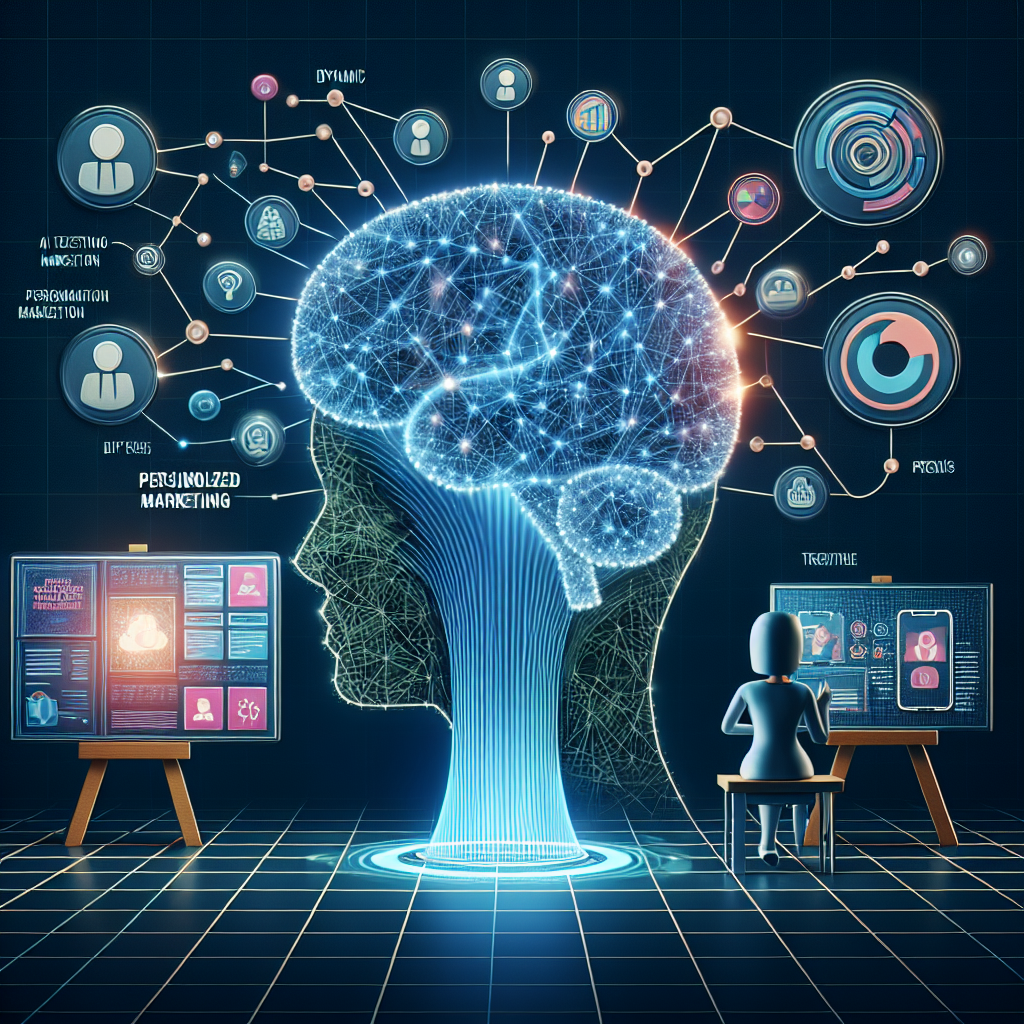In today’s digital age, personalization has become a key strategy for marketers looking to connect with consumers on a more individual level. By tailoring messages and offers to the specific needs and preferences of each customer, companies can increase engagement, drive sales, and build long-lasting relationships. And with the advancements in artificial intelligence (AI) technology, real-time personalization has become easier and more effective than ever before.
Harnessing AI for real-time personalization in marketing involves using machine learning algorithms to analyze customer data and behavior in real time, and then automatically adjusting marketing messages, offers, and recommendations to better suit each individual. This allows companies to deliver more relevant and targeted content to their customers, leading to higher conversion rates and increased customer satisfaction.
One of the key benefits of using AI for real-time personalization is the ability to scale personalization efforts across a large customer base. Traditional personalization methods, such as manually segmenting customers based on demographics or purchase history, can be time-consuming and limited in scope. AI, on the other hand, can analyze vast amounts of data in real time and make personalized recommendations to each customer on the fly.
Another advantage of using AI for real-time personalization is the ability to continuously learn and improve over time. Machine learning algorithms can adapt to changing customer preferences and behaviors, allowing marketers to stay ahead of the curve and deliver the most relevant content to each individual. This iterative process of learning and optimization can lead to higher conversion rates and better overall marketing performance.
There are several ways in which AI can be harnessed for real-time personalization in marketing. One common approach is to use recommendation engines to suggest products or content to customers based on their past behavior. For example, an e-commerce website might use AI to recommend products to customers based on their browsing history, purchase history, and other factors. These recommendations can be delivered in real time as customers browse the site, increasing the chances of a purchase.
Another popular use case for AI in real-time personalization is dynamic content optimization. This involves automatically adjusting the content of a website or marketing email based on the individual preferences of each customer. For example, an online retailer might use AI to display different product images or promotional offers to different customers based on their past interactions with the site. This level of personalization can lead to higher engagement and conversions.
AI can also be used for real-time personalization in marketing through predictive analytics. By analyzing customer data and behavior patterns, machine learning algorithms can predict future actions and preferences, allowing marketers to tailor their messages and offers accordingly. For example, a subscription-based service might use AI to predict when a customer is likely to cancel their subscription, and then offer a targeted promotion to encourage them to stay.
In addition to these approaches, AI can also be used for real-time personalization in marketing through sentiment analysis. By analyzing social media posts, customer reviews, and other sources of user-generated content, AI can determine the sentiment of customers towards a brand or product. This information can then be used to tailor marketing messages and offers to better resonate with customers’ emotions and preferences.
Overall, harnessing AI for real-time personalization in marketing can provide companies with a competitive edge in today’s fast-paced digital landscape. By delivering more relevant and targeted content to customers, companies can increase engagement, drive sales, and build stronger relationships with their audience. And with the continued advancements in AI technology, the possibilities for real-time personalization are only growing.
FAQs:
Q: How does AI gather data for real-time personalization in marketing?
A: AI gathers data for real-time personalization in marketing through various sources, such as customer interactions on websites, mobile apps, social media, and other digital platforms. This data is then analyzed by machine learning algorithms to identify patterns and preferences that can be used to personalize marketing messages and offers.
Q: Is AI for real-time personalization in marketing expensive to implement?
A: While implementing AI for real-time personalization in marketing can require an initial investment in technology and resources, the long-term benefits can outweigh the costs. By increasing engagement and driving sales, companies can see a return on investment from their AI-powered personalization efforts.
Q: Can AI for real-time personalization in marketing be used for small businesses?
A: Yes, AI for real-time personalization in marketing can be used by businesses of all sizes. There are a variety of AI-powered marketing tools and platforms available that cater to the needs of small businesses, allowing them to implement real-time personalization strategies without a large budget or specialized expertise.
Q: How can companies ensure that AI for real-time personalization in marketing is ethical and respects customer privacy?
A: Companies can ensure that AI for real-time personalization in marketing is ethical and respects customer privacy by being transparent about how data is collected and used, obtaining consent from customers before personalizing their experiences, and adhering to data protection regulations such as GDPR. It is important for companies to prioritize customer trust and data security when implementing AI-powered personalization strategies.

